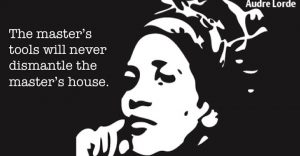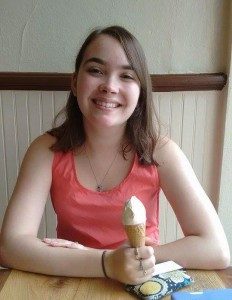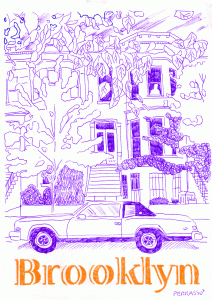Introducing our newest Moxies…
Monthly Archives: May 2016
One more diversion…
This evening, I almost took a risk. One of my greatest apprehensions about living “on my own” for two months in NYC is that I will be challenged to cook my own dinner (or, to up the ante, dinner for another unfortunate soul’s consumption) and will indubitably burn NYU to the ground. At 10 p.m. on a weeknight, I found myself in an unlikely situation—my mom left for work later than usual, my brother went to sleep earlier than usual, and neither of them had cooked anything today. Thoughts plopped into my head one by one as I considered each and put it aside: I could microwave some vegetables, but I earned my health points already by walking around some; I could make another grilled cheese (my first culinary success), but what are the chances that I’ll keep the kitchen safe yet again?; I could order something, but that’s really setting the bar low. I grabbed my familiar cereal box and ate in bed, slightly disappointed by my risk aversion but far more satisfied that the dinner I “made” myself contained antioxidant vitamins C, E, and beta-carotene.
And just like that, you have read approximately 200 words that might not say much about Me. Capital-M Me, a double-major in English and Women’s Studies, is incredibly thrilled to embark on an Urban Adventure, educating members of the judicial system about gender bias with Legal Momentum, incorporating theory and peer discussion into my already hectic mass of feminist viewpoints, and achieving Personal Growth in the process. These three components of my Urban Adventure are what I have told my friends and family that I am doing this summer, and in my own reflection, these three points serve to pin down my otherwise divergent thoughts and expectations. Do educatory approaches to gender issues defy or employ patriarchal tools in Audre Lorde’s sense? Am I the only introvert in New York City? Do they sell Smart Start at Trader Joe’s? I consider some of these concerns with more gravity than others, but the common thread between these divergent thoughts is the uncertainty that derives from an unexpected outcome.
You were probably expecting to get to The Point by now, but I present you with yet another diversion. (Me would not be happy about this.) In high school, the only poetry that crossed my field of vision was on an AP English Literature practice test. For some odd reason, my twelfth-grade English teacher singled me out as a good writer and asked me to write a poem for the upcoming Youth Empowerment Summit, an event my school district hoped would portray some sense of “what troubles the youth these days” to an audience of parents, teachers, students, and county officials. She gave me a packet of handouts that tried to answer that question, and I decided that I would write a poem about relationship violence, feeling slightly overwhelmed because only by reading fiction and familiarizing myself with others’ lived experiences could I grasp what the issue really was. My favorite stanza of the poem is below, and it captures the open-mindedness and willingness to take risks that I hope will characterize my time in NYC:
I needed a new face, with wider eyes to recognize,
Round, glee with space
For a nose of heightened sense and lips spread across both cheeks–
Oh, how they hold back.
Let the borrowers become creators,
The consumption aesthetic become novel innovation,
The thoughts become speech.
Shape yourself.
I couldn’t be more grateful that poetry has stumbled into my life (or rather, that I stumbled into it) because it has offered me countless opportunities to turn calculated risks into bona fide works of art. I love my bowls of cereal, but relish the moments and ideas that surprise me and allow me to grow. Every women’s studies class, domestic violence hotline training, or other educational foray into the world of gender has altered my feminist worldview and provided me with a different lens through which I converse, write, read, and interact with others. Diversions from the foreseen, the tried-and-true, and the expected confront me with learning moments that I hope will fill my Moxie experience from start to finish.
Who Am I?
I was accepted to the Moxie Project. Great! Now I just had to tell my parents what it was and convince them that the strange-sounding program was indeed worth my entire summer away from them. No big deal, right? Well…
Let’s back up. My name is Kelly Atherton and I am a rising (Pre-Med) senior majoring in Biology, minoring in Global Health and Chemistry, and dabbling in Ecology when I have time. That all sounds very sciencey and technical, so you may be wondering what I’m doing here among self-proclaimed feminists and patriarchy crushers. To be honest, I’ve thought the same thing on multiple occasions. I’m not a women’s studies, history, or even public policy major. I’ve never identified as a feminist. My parents don’t tell me that as a girl, I can do anything I set my mind to. In fact, my first exposure to feminism was one class that I took this past fall. But one class is all it took to convince me of the significance of gender equality and to ignite in me a growing flame of desire to be involved in the movement to that end.
I was scared to tell my friends and family exactly what I was doing this summer, which is working at Choices Women’s Medical Center. I am from Spartanburg, South Carolina, a city that is over 50% Christian and 47% white. I grew up going to church at least twice a week and learning that sex was a dirty word. How could I tell my parents, who cringe at the words “birth control,” that I would be working at a facility that actually offers it and other services to women? I found myself masking the real meaning of the work with explanations like, “this will be great for my resume” and “it’s community service.” While those things are true, they don’t represent the reason I chose to commit myself to the Moxie Project. I have a passion for medicine and believe that women have the right to equal care and privacy. From my global health classes, I learned that “global is local” and from my women’s studies class I learned that feminism has a place in every domain of life; it’s not just a march happening outside my window or a segment on the evening news. That’s why I’m starting here, in New York City, and committing to learn how gender disparities affect women’s health.
Two things happened to me recently that make me especially excited for this summer. The first is perhaps more motivating than exciting. A few days ago, after explaining to someone very close to me that I would be working for gender equity and reproductive rights at my internship, they dismissed me, responding, “That sounds cool, but you just need to realize that that [referring to feminism] is such a small part of life and the world.” I stayed quiet, but the words ate me up inside. Feminism is not some club for liberals or a fun past time like bird watching or geo-caching. 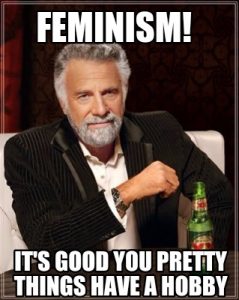 The problems that feminism tackles are so pervasive that they surround women from every side and affect every single individual living in a patriarchal society. So no, it’s not a small part of life and the world. Yet, that opinion is common and accepted where I live. My goal is not to change the world or destroy the patriarchy in one summer, but after it’s all said and done, maybe I can share with that one person what feminism means to me, why it’s so important, and why it’s not such a small matter.
The problems that feminism tackles are so pervasive that they surround women from every side and affect every single individual living in a patriarchal society. So no, it’s not a small part of life and the world. Yet, that opinion is common and accepted where I live. My goal is not to change the world or destroy the patriarchy in one summer, but after it’s all said and done, maybe I can share with that one person what feminism means to me, why it’s so important, and why it’s not such a small matter.
Secondly, I finished taking the MCAT, the medical college admissions test, on May 20th. It was a grueling 7.5-hour test, and honestly all I could think about for the past five months.
 Having been study-free for four days now, I’m rediscovering everything that had to be pushed aside before. That includes friendships, hobbies, TV shows, and even some parts of my identity. When I was introducing myself a couple of paragraphs above, Pre-Med was the first word I used to describe myself. That’s because for the past three years, it’s been my overwhelming identifier to administrators, teachers, admissions boards, colleagues, and myself. But I’m ready to set that aside and discover who else I am. While preparing for this program, our group participated in an activity where we were repeatedly asked, “Who are you?” and we responded with some qualifier or phrase. I found the task more difficult and awkward than I would have liked. Who am I? Let’s find out!
Having been study-free for four days now, I’m rediscovering everything that had to be pushed aside before. That includes friendships, hobbies, TV shows, and even some parts of my identity. When I was introducing myself a couple of paragraphs above, Pre-Med was the first word I used to describe myself. That’s because for the past three years, it’s been my overwhelming identifier to administrators, teachers, admissions boards, colleagues, and myself. But I’m ready to set that aside and discover who else I am. While preparing for this program, our group participated in an activity where we were repeatedly asked, “Who are you?” and we responded with some qualifier or phrase. I found the task more difficult and awkward than I would have liked. Who am I? Let’s find out!
By the end of the summer, I hope I become more comfortable with that growing inner feminist and to learn what that means for me. I want to have a better idea of how feminism and medicine can work together toward the same goal. Mostly, I hope I will no longer feel scared when discussing my own beliefs and passions, no matter with whom it may be.
Finding Feminism in the Big, Bad, REAL World
Hey y’all! My name is Adaiya Granberry and I am a rising sophomore majoring in Public Policy with a minor in Computer Science. I hail from Tacoma, WA, w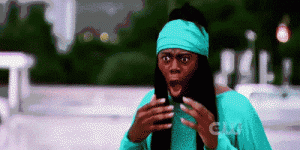 hich is a little south of Seattle and is where I have spent basically all of my life prior to Duke. Coming to this elite university was a huge culture shock for me coming from such a truly diverse city, and from the West Coast altogether. I felt like coming to Duke, I was thrown into the big, bad, REAL world.
hich is a little south of Seattle and is where I have spent basically all of my life prior to Duke. Coming to this elite university was a huge culture shock for me coming from such a truly diverse city, and from the West Coast altogether. I felt like coming to Duke, I was thrown into the big, bad, REAL world.
But to be honest, that was kind of what I was looking for. I felt like at home, things like racism, sexism, and homophobia were all very mythic. I myself didn’t encounter (or at least that’s what I thought) people who belittled my worth as a result of my race or my gender. I believed that racism was for the South. Homophobia was for older people who were too stuck in the past to come to terms with the reality of today. I felt myself yearning for not only a different environment, but for the opportunity to experience these tragedies that I protested, but only saw in the news lines in other parts of the country and of the world.
I was immediately confronted with many of these issues in just one short semester at Duke, which was a lot for me to process, but provided much to learn from. I was also motivated to learn more, which is a huge reason why I chose to apply to this program.
What does it mean to be a “feminist”? What distinguishes someone who advocates for women from someone who is a stark feminist? In my high school, this label of a “feminist” always had some sort of negative connotation. The feminists were just the group of girls who hated all of the guys.

While I may not have agreed with this stigma, if you asked me in high school to tell you why or why not, I would not have known how to respond or how to define this very broad thing we call *drum roll please*….. FEMINISM.
There is white feminism versus womanism–this idea of a divide that feminism does not encompass the perspectives and experiences of black women and black feminists.
Intersectionality is not just a matter of race vs. gender, but there are the layers of sexual orientation and of social class and of age that all come together to make feminism much more complex than it is often defined as. So as I read more books and do more research and ask more questions, I only question more and more how I can begin to define this conglomeration of ideas and perspectives.
Through this program, I hope (ke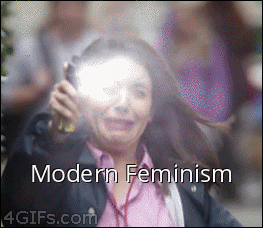 y word: hope) to be able to articulate my own informed opinion of what feminism is and what feminist issues mean to me. And what better place to ask these questions than in the Big Apple! New York City is somewhere I had never been to before this month, an international hub, and a place which I also see as a conglomeration of different nationalities, ethnicities, sexualities, religions, socioeconomic statuses, generations, and much more.
y word: hope) to be able to articulate my own informed opinion of what feminism is and what feminist issues mean to me. And what better place to ask these questions than in the Big Apple! New York City is somewhere I had never been to before this month, an international hub, and a place which I also see as a conglomeration of different nationalities, ethnicities, sexualities, religions, socioeconomic statuses, generations, and much more.
Through my work with Sanctuary for Families, I want to learn more about the day-to-day work in a nonprofit, more about the inner workings of a nonprofit, and how women’s empowerment might be reflected in their work environment. As my first, real internship (SCARY), I also want to perfect my work ethic. I want to be challenged (in whatever capacity that may be) and really hold myself accountable for the work I put forward and how I represent myself as an intern. I have my first, real opportunity to start crafting my brand and how I want to be remembered as an employee in a larger organization working for a cause that is larger than myself.
So, key takeaways:
- I’m Adaiya and I am a Filipino/Black/WestCoastin’/Middle-Class/Millennial feminist.

- I am not really sure what being a feminist totally entails, but that’s why I’m here.

- I want to be challenged not only by my work, but by the many people I encounter in NYC, by their different perspectives, by my awesome fellow Moxies, and by Ada & Shannan.
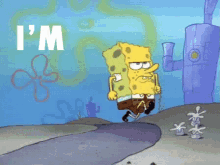
- I’m kind of anxious, but super excited for all of the self-growth to come my way!!!
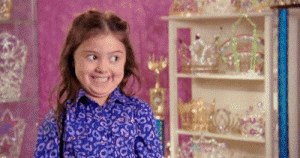
On “Chopped,” Packing, and Apprehension
Your name is Savannah. You are twenty years old and have just ended your sophomore year at Duke, where you recently declared a double major in psychology and women’s studies. You intend on declaring an education minor, but haven’t actually gotten around to it yet. In your spare time, you devour books of all sorts and theatre of every kind. You practice taekwondo, knit, and interact with every animal you come across. You will be working with Sanctuary for Families at the Bronx Family Justice Center this summer, and you are effervescently looking forward to it.

(from Chopped: open your mystery baskets, folks!)
It is May 23rd, and you have come off of the end of your killer spring semester. You swallow a full two seasons of Chopped in entirely too short an amount of time, and once you feel suitably lazy and refreshed, you begin packing. Packing is something that you have always enjoyed, though for something as large as the Moxie Project, in NYC no less, it feels almost insurmountable. What clothes to bring, what accoutrements to include in the limited space of your suitcase? What will your apartment have or not have? What will you be willing to buy? You’re starting to envy the people on Chopped who are told exactly what they need to feature in the dishes they create for the judges. Even if Chef Alisha has to cook with bay scallops, braeburn apples, sorrel, and duck hearts, she knows that at the end of the round, a dish must be created that feature those four weird things.
You approach your packing like you might approach Chopped, regardless of your utter lack of professional chef experience. You lay out things that seem utterly opposed in juxtaposition to one another; your conservative button-down shirts, your favorite going-out dress, your huge rainbow wings for NY Pride. You are flying blind, but you know that you’ll get through.

(this is you, only with less property damage)
Still, you have been trying hard to sit with some ethical issues that were only enhanced in your mind through the well-intentioned but ultimately unfulfilling DukeEngage Academy (meant as a two-day training for students going all over the world on similar programs). Your program director said something that has stuck with you; she hopes that you will do the least harm possible and that you hopefully will do a bit of good.
You know that as a summer intern, your presence is valued but it is a sacrifice. You have never worked with children of survivors of intimate partner violence before. You have barely even worked with survivors of intimate partner violence before. You are equipped only with a background in developmental psychology, a history of childcare experience, and a passion for the work. You expect that you will be out of your comfort zone, and you are prepared to lean into that discomfort. Still, as with any similar fish-out-of-water experience, you feel apprehensive. Will you be able to relate to the children? Will you have a good relationship with your supervisor? When a child speaks to you in Spanish, will all your years of language classes fly out of your head? There are a thousand possibilities for things to go awry. Again, this is something you have to sit with.

How do I look?
Rupi Kaur is an Indian writer and artist based in Toronto, Canada whom I have been following on Instagram ever since I arrived at Duke. Her artwork and poems depict love, fear, womanhood, pain, nature and so much more in ways that are so new and fascinating to me.
But, one Rupi Kaur poem has stuck with me for as long as I remember.

rupi kaur
i want to apologize to all the women i have called beautiful
before i’ve called them intelligent or brave
i am sorry i made it sound as though
something as simple as what you’re born with
is all you have to be proud of
when you have broken mountains with your wit
from now on i will say things like
you are resilient, or you are extraordinary
not because i don’t think you’re beautiful
but because i need you to know
you are more than that
― Rupi Kaur
Tell me that wasn’t the most beautiful thing you’ve read!
Now that I’ve let my nerd out a little, let me introduce myself.
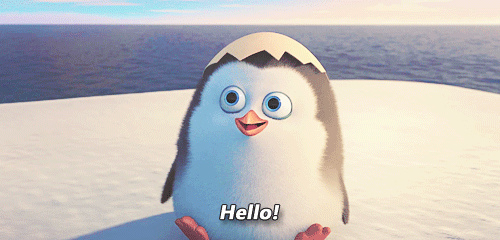
Hi world! My Name is Edom. I was born and raised in Addis Ababa, Ethiopia, and came to the United States about seven years ago. I was lucky to grow up in two different cultures because it allowed me to look at things from different perspectives. Growing up in this “gray area” of cultural identity often offered me answers to a lot of questions I had about norms and social expectations during my time in the United States. But, one thing I never understood: why is it common belief that the best thing a woman has to offer this world is physical beauty?

I mean why is it that women’s qualities and best attributes have to be reduced to physical beauty capped by narrow Eurocentric standards?
Now, you may be wondering, “What does this have anything to do with The Moxie Project?”. This topic answers the question of “why feminism” and what feminism means to me.
From a very young age, in most cultures, girls are raised to believe their strongest asset to be their beauty. Not their brilliance, courage, kindness, bravery, or the million other things they are able to accomplish. We are told that “looking pretty’ will get us farther in life than confidence or resilience ever will. This ideology is so instilled within our society that girls internalize these ideals. Our looks and bodies are constantly policed and politicized, while our words and ideas are often patronized. From dress codes that dictate what girls wear so “the boys don’t get distracted,” to offices that deem natural hair “unprofessional”, our society is focused on all the wrong areas concerning girls.

I’m so excited to be apart of the Moxie Project and work with GGE: because for me, feminism is giving girls the support to reach their fullest potentials and eliminating the roadblocks that stop them from doing so, whether that is negative social norms or systematic oppression. I want to draw emphasis to the importance of education, activism and confidence of girls who have the ability to be much more than just pretty and acceptable. I want to work to make girls realize that they are leaders and pioneers; as I have been lucky to meet some amazing woman who are phenomenal role models during my year at Duke.
As Brigham Young put it, “You educate a man; you educate a man. You educate a woman; you educate a generation.” And, the way I see it, you empower a woman; you empower the world. Or simple put…
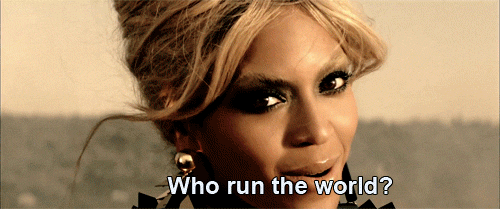
Embracing the F-word
Hello, my name is Andrea Cool and I am a feminist.
While this may seem completely obvious considering where you’re reading this, for me it’s something that took me a while to actually say – an identity I had to learn to recognize. That isn’t to say that I ever disagreed with the values of feminism. On the contrary, to me they seemed like no brainers. Of course I believed in gender equality. Of course I could do anything that my older brother was able to do. Of course I could be successful.

Initially, the problem was that I was sheltered. Don’t get me wrong; my family faced its fair share of obstacles as I was growing up, ones that even today I’m still learning to understand. But, sexism, the patriarchy, gender violence – those didn’t exist for me as a kid. I didn’t understand the extent to which many women and girls were oppressed. This is a way that I am privileged. I am lucky.
I attribute this to my mother. I grew up in a house where my mom called the shots. If she wanted to do something, nothing would stop her from getting it done. To the childhood me, my mother was my role model; she was invincible. She made me feel invincible too.
Eventually though, this invincibility started to wear off. I couldn’t be sheltered from the realities of the world forever. The unrealistic expectations set for women. The objectification of women in the media. The fact that just walking down the street can be a dangerous thing for women. But even though I was starting to see these injustices – and wanted to change them – I didn’t immediately consider myself a feminist. A feminist was what you called the radical women who burned their bras and hated all men (or at least that’s what I thought). I wasn’t ready to be labeled with the “F-word”.
It wasn’t really until I got to college that I started to actually understand the meaning of the word feminism and realized that, oh wait, I guess I do identify with this movement because I do in fact believe that women deserve the same rights as men.

The word “feminist” has gotten such a bad rep in the past that it’s scaring people off from what really matters: gender equality. It’s a word we need to start embracing to get rid of this stupid extremist stereotype.
So today I am a feminist. I am also a cat lover, a runner, a terrible cook, and a Broadway enthusiast. I am a student at Duke University, studying Biology and Global Health. In the fall I will be going into my senior year when I will start looking into universities to continue my studies in public health focusing on women’s health rights. I realize how extremely lucky I am to be where I’m at today. That isn’t to say I haven’t worked my ass off to get here – because trust me I have – but if I hadn’t grown up in an atmosphere that told me I could be whatever I wanted to be and that gave me the tools to do just that, so many things could’ve held me back.
This summer I will be working with Girls for Gender Equity, helping to improve their after-school program geared toward girls of color living in underserved communities, where it’s easy for young girls to fall through the cracks in the system. I’m so excited to work for this organization because I want to help other young women to feel the support and have the opportunities that I did to make it through school and have the chance to achieve their dreams. As the inspirational Malala Yousafzai said, “We cannot all succeed if half of us are held back”.

So I am ready for this summer in New York. I am ready to embrace my identity as a feminist and hopefully see that identity grow and develop as I step out of my comfort zone. I realize that I won’t be changing the world in just 2 short months, but if the work I do can help GGE make a difference in even just one girl’s life, that sounds like a success to me.
My #Hashtags
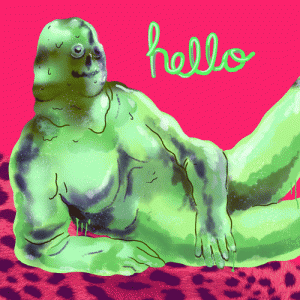 Howdy! My name is Delva (but I go by Chelsea) Reyes Rodriguez and I am a rising Senior majoring in History and minoring in Creative Writing. I was born in Puerto Cortez, Honduras and raised in Los Angeles, California. How would I hashtag myself? Good question that you never asked. #intersectionalfeminist #memer #socialmediajunkie #musicaficionado.
Howdy! My name is Delva (but I go by Chelsea) Reyes Rodriguez and I am a rising Senior majoring in History and minoring in Creative Writing. I was born in Puerto Cortez, Honduras and raised in Los Angeles, California. How would I hashtag myself? Good question that you never asked. #intersectionalfeminist #memer #socialmediajunkie #musicaficionado.
#intersectionalfeminist
I can’t remember when I first proclaimed to be a feminist. The intersectional adjective is hard for me to place a date on; and, what do I mean by intersectional? The label feminist was easy enough to embrace for me once I came online to the foundation of feminism- women seeking equal rights. However. Feminism as a concept is ambiguous and amorphous. Many more factors affect women than just gender–other factors that are the basis for inequality and oppression. Growing up I knew firsthand about socioeconomic inequality. I immigrated to Los Angeles from Honduras at the age of three and faced all the challenges immigrants faced, but I watched my then very young mother struggle because of her adjectives. She is Hispanic, a woman, an immigrant whom could not speak English, and a single mother. As I grew up, I recognized these other factors complicating her life and realized that not every woman dealt with the same oppression. There had to be more than the white feminist ideals and imagery toted by the media. I identify as an intersectional feminist because I believe there is more at work than simply gender involved in the discrimination and oppression of women, but beyond that intersectionality in any movement is the basis for its growth and flourishing. Because of intersectional feminism women from every aspect of life is able to embrace feminism, which is ultimately my hope- that a woman anywhere in the world can see her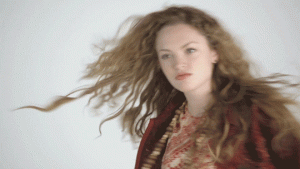 self as part of feminism because she has a place being a feminist and supporting feminism.
self as part of feminism because she has a place being a feminist and supporting feminism.
This is a good transition into why I chose
#Moxie #DukeEngage.
Moxie is my chance to join the tradition of activism, but Moxie is taking a chance on me. I chose Moxie not only because I wanted to contribute to something bigger than myself but to grow. When I originally thought about applying for Duke Engage I was convinced by peers, professors, and myself that going abroad was the only way to do any good, let along take advantage of the opportunity. My first year at Duke I applied and was rejected by a Duke Engage international program. I have never been more grateful to be rejected by Duke because later that year something wonderful happened- I went to my first feminist meeting. Surrounded by intelligent, passionate women I realized there was plenty of work to be done for women right here. Listening to their stories of everyday struggles with everything from getting birth control to street harassment. Fast forward to my third year. At some point between attending those meetings and joining Duke’s Women’s Collective I met Katie and other Moxies. They spoke vibrantly about Moxie and Ada, the program’s director. It was these interactions and a deep internal nagging that pushed me to apply for Moxie. I knew I had beliefs, many in fact detailed and intricate in their origin and reasoning but I wanted more. Moxie IS empowering (professionally, socially, politically).
#BMC
This summer I am working with Brooklyn Movement Center. BMC is a community organizing non-profit located in Bedford-Stuyvesant (Wikipedia tells me the locals refer to it as Bed-Stuy…good to know). The organization targets specific issues impacting the community and searches for concrete, structural solutions to reform institutional issues. The communities BMC serves drive the organization, making its leadership tight knit, strong, and driven. By interning at BMC I am finding place in the community, and my hope is that interning there will give me a small space to understand activism and community organizing, especially when I am an outsider to that community.
My hashtags are the way I see myself, but others may not see me the same way. I plan on taking great strides being conscious of my position in a community I have never been to before. As an outsider I am tasked with gathering information about the neighborhood from those I work with, not personal experience; this challenge may be the most exciting thing for me. I am not saying I am bringing something new to the table for BMC. I am not going to come in day 1 and solve issues that residents of Bedford-Stuyvesant have grappled with long before I arrived. All I can offer is my enthusiasm and desire to help while accepting that solutions and treatments to the issues may come long after me.
Stay Tuned!
Status
Moxie Summer 2016 begins May 29th!
Okay, Ladies, Now Let’s Get Information
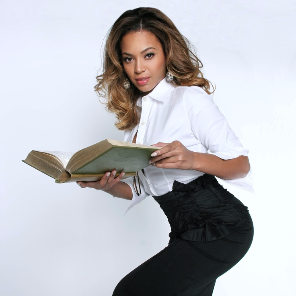 Ciao! I’m Autumn Carter, I’m a rising senior (???? somehow), 20-year-old from Houston. I study Public Policy and International Comparative Studies and I stole this post title/joke from the internet.
Ciao! I’m Autumn Carter, I’m a rising senior (???? somehow), 20-year-old from Houston. I study Public Policy and International Comparative Studies and I stole this post title/joke from the internet.
Beyoncé references are kind of something I do often. Queen Bey and I share a hometown, a last name, and more recently, the self-label of Feminist. Beyoncé came under scrutiny when her 2014 song, ***Flawless included a recording of Chimamanda Ngozi Adichie describing the word as follows:
Feminist. A person who believes in the social, political, and economic equality of the sexes.”
And yes, I did type that from memory. Adichie’s statement surprised many, but some feminists were disappointed in what they felt was an oversimplification of the word. Beyoncé’s newest album included another quote from an activist, even further from the mainstream. In her newest video, Malcolm X’s voice is heard saying:
The most disrespected person in America is the black woman.
The most unprotected person in America is the black woman.
The most neglected person in America is the black woman.
Upon hearing this speech excerpt, I could have cried. Beyoncé went even further. She labeled herself an intersectional feminist. She acknowledged the fact that women of color are left out of conversations about race and conversations about feminism.
If there’s one thing I’ve learned in my social sciences education thus far, it’s that discoveries of the truth start small. Usually, a moral realization is initially made by someone who lacks the ability to make their idea widespread. But over time, ideas and truths spread. All throughout history, those who most need their voices heard and their stories told are often in the worst possible position to do just that. Until one day, a person or entity with a wide reach of influence gets ahold of the important truth, is convinced of its veracity, and spreads it.
But something else happens when an idea or issue makes it into the mainstream – it becomes incredibly diluted. Beyoncé didn’t write an album dedicated to the intricacies of the untold history of Black women’s plights. She didn’t publish an open letter to Lena Dunham on the ways mainstream “white” feminism excluded her. Her statements, set to music, were quick, succinct, and simple.
And although there is always more that could have been said – I know one thing for certain. Beyoncé’s Lemonade will be viewed many more times by many more eyes than YouTube star Franchesca Ramsey’s 3 minute video titled “WTF is Intersectional Feminism???” ever will. So say what you will about Bey’s statement, but it gave the term a level of coverage it never would have received otherwise.
Behind every little social justice-y statement of Beyoncé’s and behind every Oscar winner’s selfless speech on climate change or the wage gap are countless academic research papers and opinion articles documenting the complexities of that problem or untold truth in detail.
And in today’s digitized world – they’re connected. A controversial statement in a public setting leads to a link to an article your friend shares on Facebook. That article links to a TedTalk on the subject, and that to the bio of a professor who’s an expert on it, and before you know it, you and your smartphone actually learned something.
What has this got to do with me, you ask? Well I, unfortunately, am not Beyoncé. I cannot “change the game with that digital drop.” But I know there are more truths to discover, everywhere. I know that there are people being marginalized and mistreated in ways I have never been exposed to and can’t begin to imagine. And I believe that The Moxie Project, in conjunction with my internship at Brooklyn Family Defense Project, will open my eyes to issues like these. I am ecstatic to have a summer ahead of me that will uniquely give me the knowledge (or the ~information~) to talk about them confidently as well as the experiences understand them personally (or at least as personally as an outsider working for 8 weeks in this community can).
Or maybe I’m completely missingthe mark of what I’ll learn. As my bon voyage date looms closer, all I can do is try and keep an open mind and stand firmly by my intentions to learn and make myself useful as much as possible.

But who knows? Maybe Queen Bey herself will reference and draw attention to the issues surrounding the U.S. foster care system in her next album.


